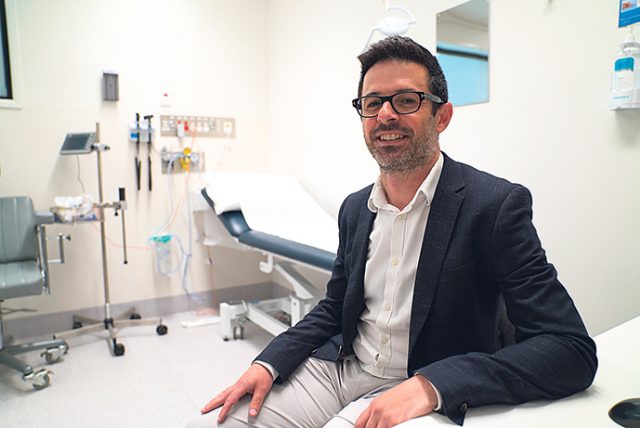Experts are getting behind a new report calling for the National Bowel Cancer Screening Program (NBCSP) to be lowered to include people aged from 45-years-old.
Released by social demographer Bernard Salt, the report reveals a rising rate of bowel cancer among people aged 45 to 49.
Nepean Cancer Care Centre Medical Oncologist, Dr Deme Karikios, said he has seen an increase of younger people being diagnosed with bowel cancer.
“I have seen more than expected young people with bowel cancer, but we also know that the rates of bowel cancer in those aged 20 to 40 has doubled in Australia in recent years,” he said.
“Those who are most at risk are individuals with a strong family history, who are overweight or physically inactive, have a diet low in fibre and high in meat, smoke or drink unsafe levels of alcohol or have another disorder of the bowel.”
Dr Karikios said widening the NBCSP age, beginning five years from the current age of 50 and screening an extra two million Australians would be significantly beneficial.
“Early detection is absolutely vital in treating bowel cancer as most bowel cancers detected early can be cured,” he said.
“We could potentially catch more polyps and cancers at an earlier stage which will translate to a higher chance of cure in the long-term.”
With a spike in bowel cancer detection rates at an advanced stage, Dr Karikios said people should be on the lookout for warning signs.
“A few of the most important ones are a change in bowel habit for example, the development of constipation which is unusual for you, or the feeling that you haven’t finished when you use your bowels,” he said.
“Blood in the stool or unexplained anaemia are some other ones along with unexplained weight loss.”
If anyone experiences these changes or concerns, Dr Karikios recommends speaking to your doctor and acting early, rather than putting it off.
“Whatever your age, if you notice changes or have a family history of bowel cancer, it’s important that you talk to your doctor,” he said.
“If someone suspects they might have it, they should see their GP who can organise appropriate tests and refer them for a colonoscopy if necessary.”
Emily Feszczuk
A graduate of Western Sydney University, Emily covers Local, State and Federal politics for the Weekender, as well as crime and general news.

